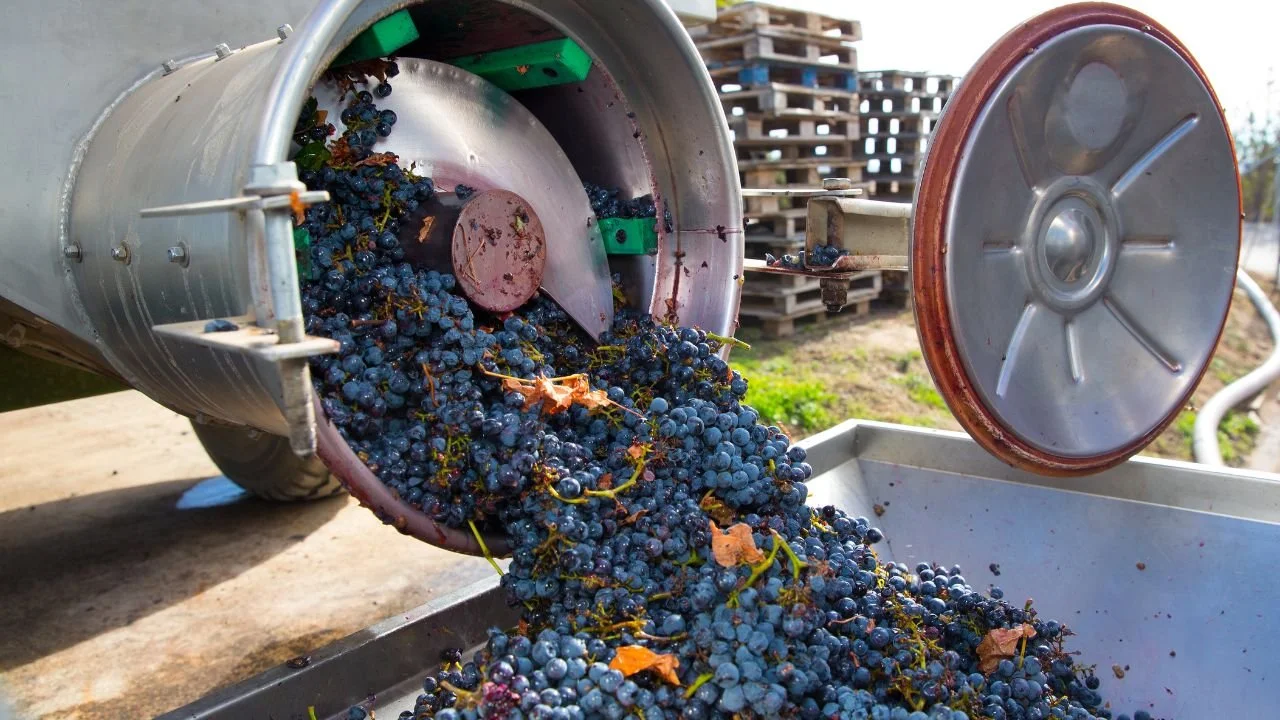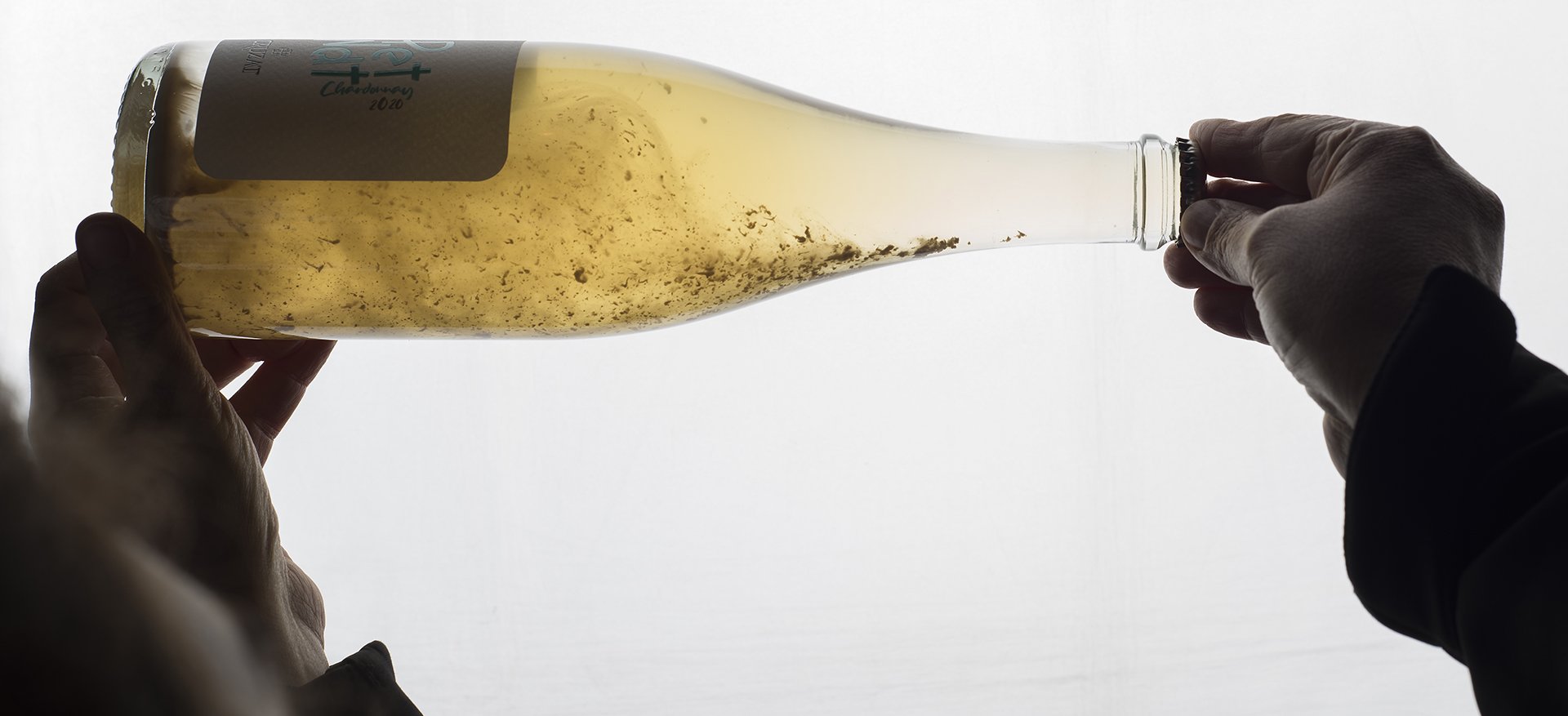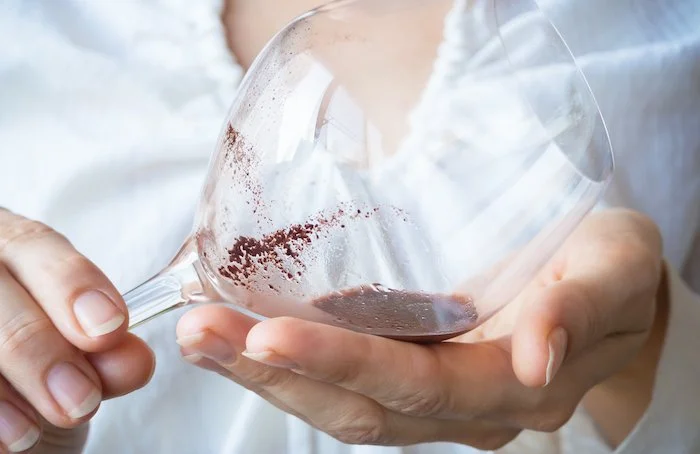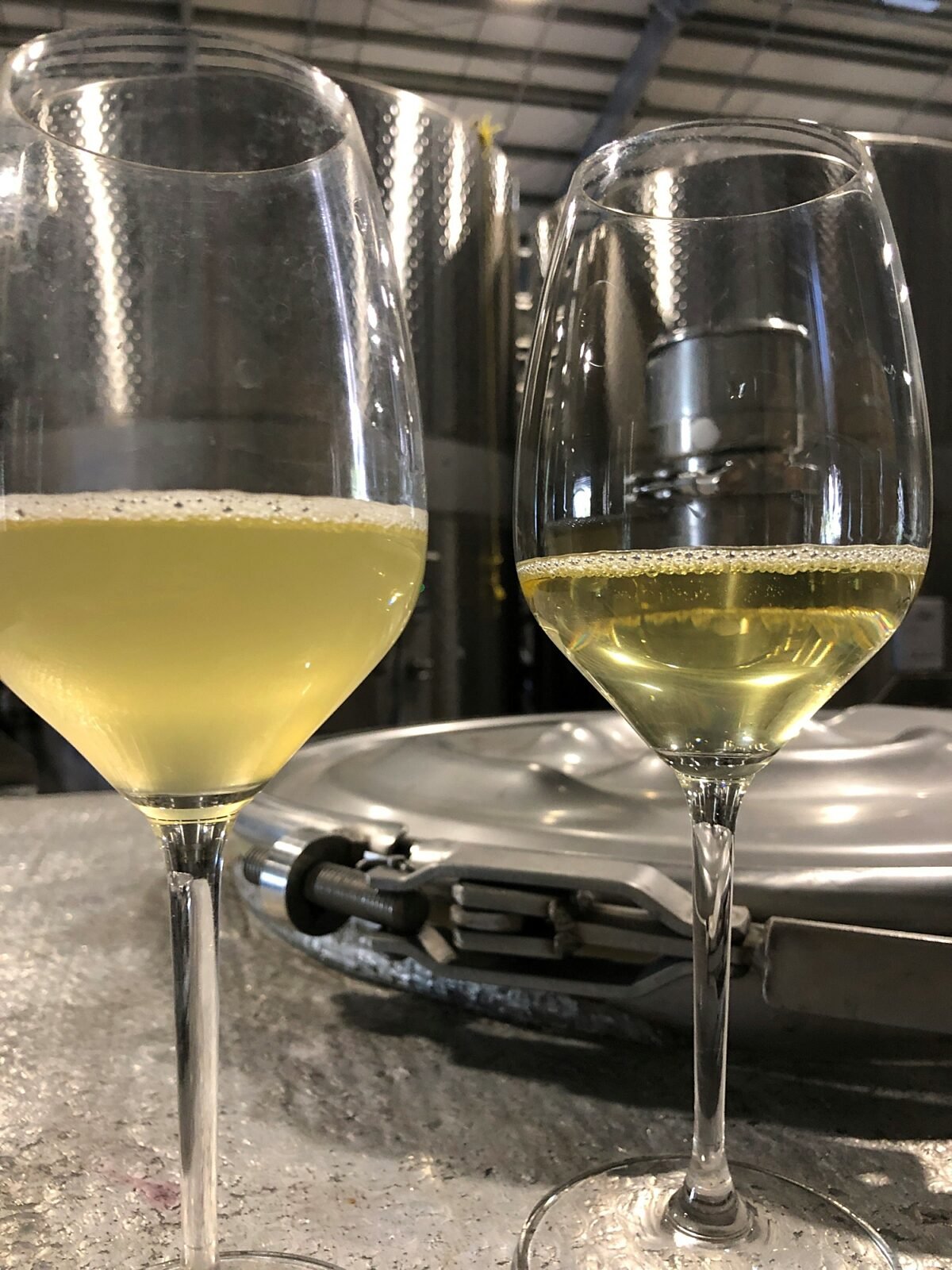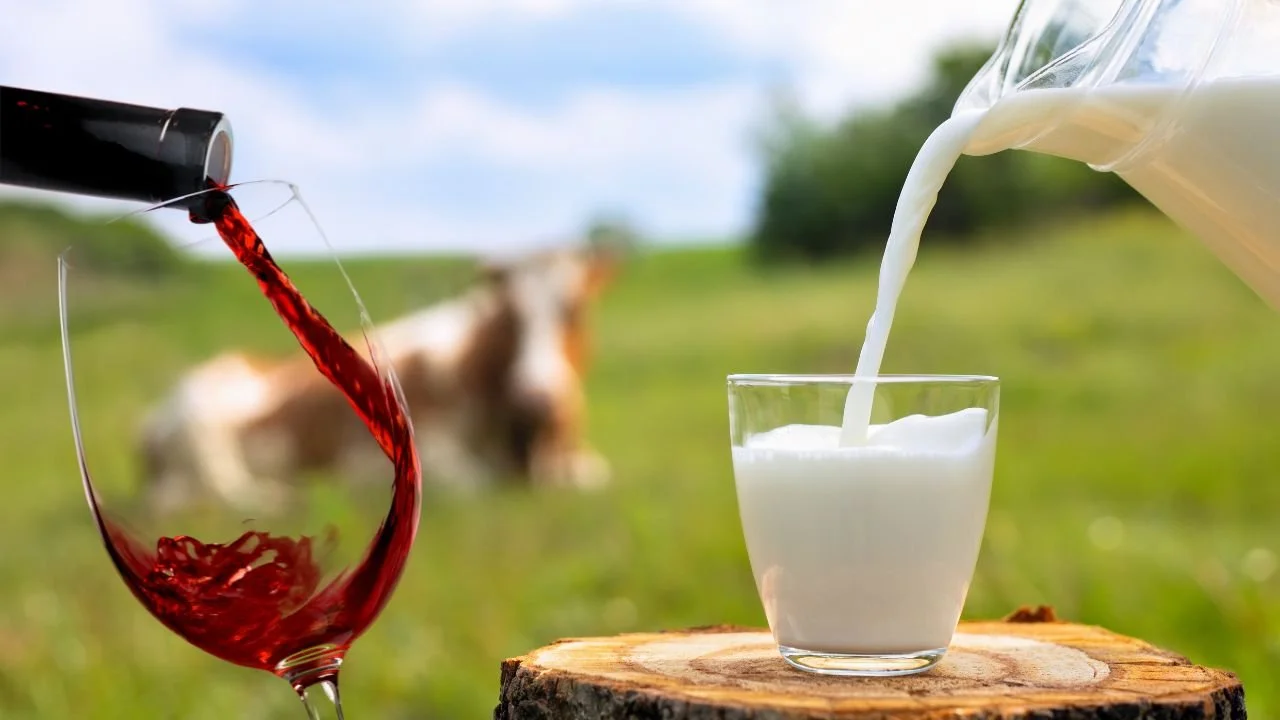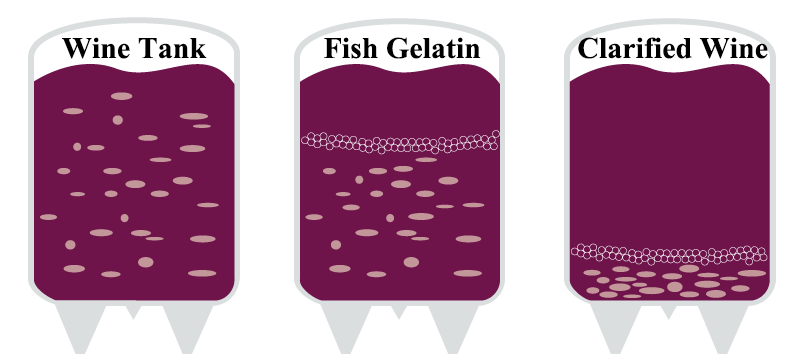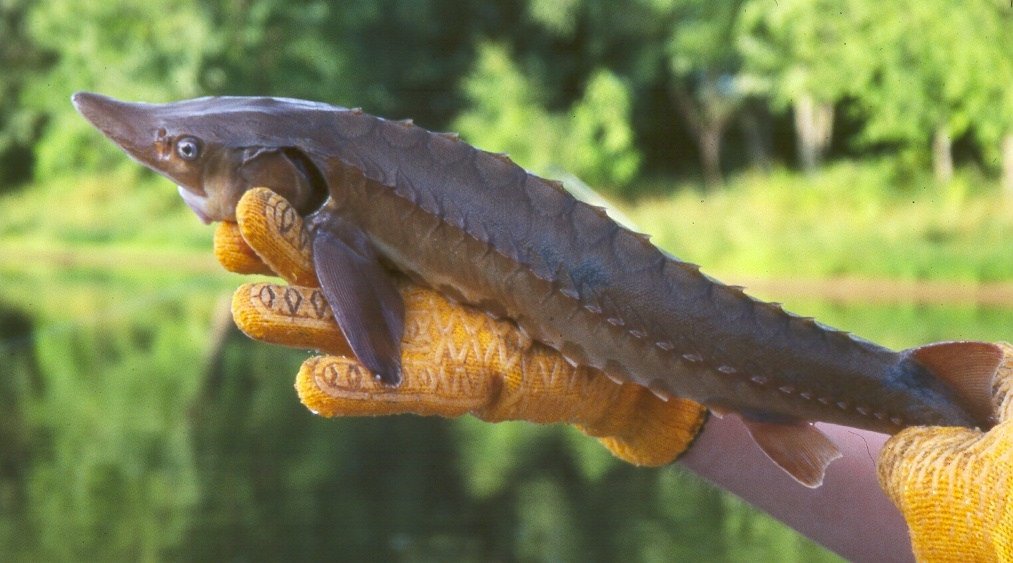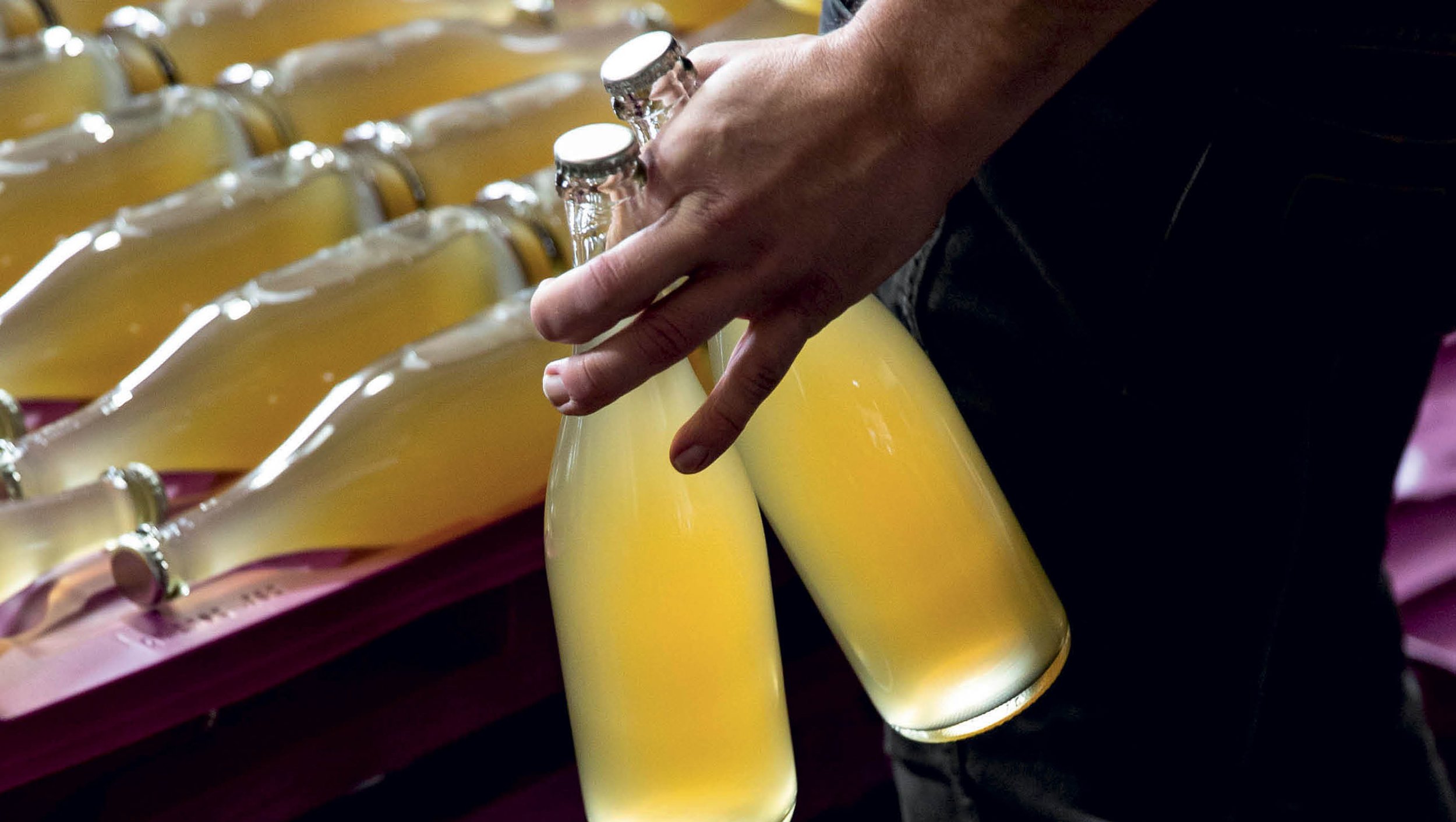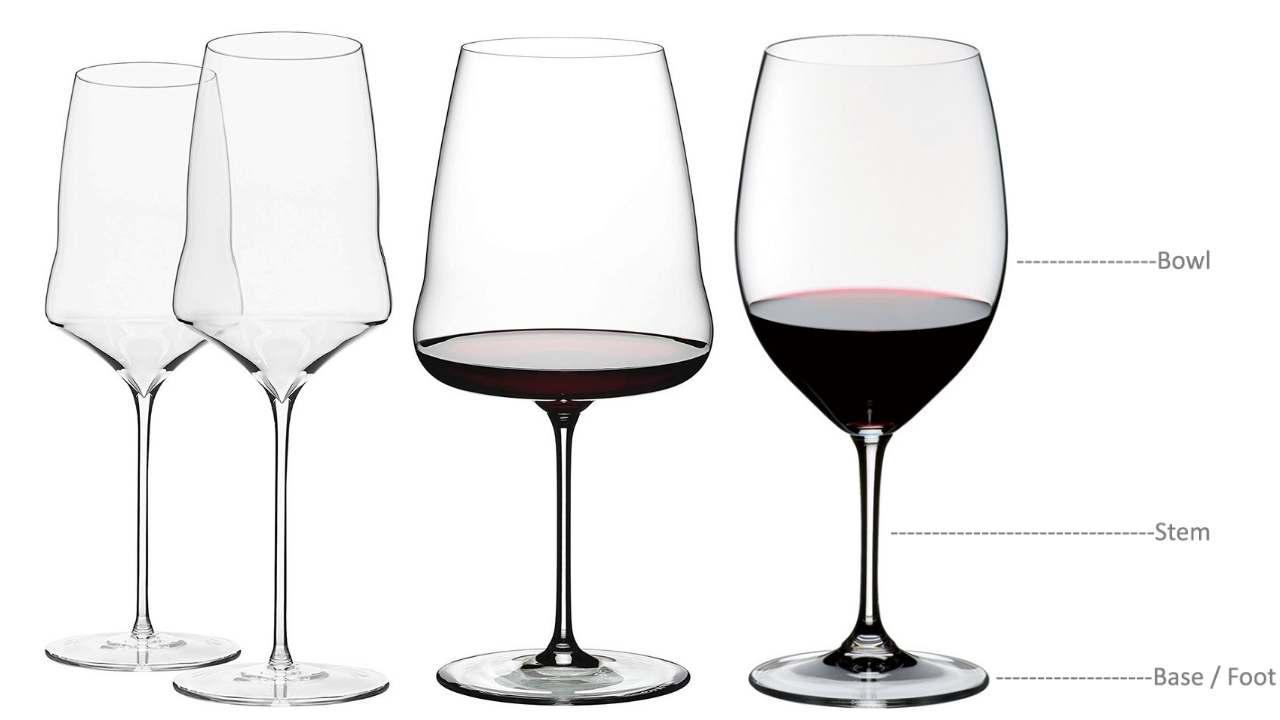Why Wine Isn’t Vegan
Wine is basically adult grape juice. And grapes are a fruit. So why oh why are some wines not vegan nor even vegetarian?
Well that’s what I’m going to be explaining today.
You see. Working in the bar industry for over a decade, I thought most people, especially those who enjoy wine, were clued up on the fact that most wine isn’t vegan or vegetarian. To my surprise, this isn’t as well known as you’d think.
I know quite a number of vegetarians and vegans who stick by their morals strongly on not consuming animal products, then go out on the weekend and knock back an entire bottle of wine without knowing it’s not suitable for them.
Sorry to say, but if you are vegan or vegetarian, and you like wine, then you’ve probably ingested animal products in your time.
Don’t fancy reading? Watch the video
Wine making process
Before we jump into why there are actual animal products in our grape juice. It helps to have a little understanding of the wine making process.
I’ll keep it brief because I talk about wine a lot here on this website. So it’s safe to say it's a topic I've covered previously.
Just check out my Guide to Pinot Noir and my Guide to Merlot. My Non-alcoholic wine guide also talks about the traditional process in wine making. My Natural Wine article gives some good context and my why red wine is actually good for you article, well, that one doesn’t cover much about the process of making wine, but it will make you feel better about drinking it!
Similar, my podcast episode about how Rudy Kurniawan faked $30 million worth of wine tells you nothing about how wine is made but is a good listen.
The Basics of Wine Making
Wine is made by crushing grapes into juice. Adding yeast. Then waiting for that yeast to turn the sugars in the juice into co2 and alcohol. Which is why we have such things as sparkling wines (enter champagne, prosecco, crémant) and why wine is alcoholic and not sweet.
However, During this process, the juice becomes cloudy.
Why is there stuff floating in my wine? Is it safe to drink?
Wine sediment - image source
Which by the way, is not an issue. You can totally still drink it. It’s safe. You find this a lot with natural wines. They are super cloudy and they usually have sediment at the bottom or little bits floating around.
It’s a combination of the dead yeast, and science of yeast turning sugar into alcohol.
Totally safe… That being said people don’t like it. Aesthetics is everything.
Red wine sediment in glass - image source
I can’t tell you how many times I’ve served unfiltered or natural wines and had people return them giving it the whole “there's bits floating in my wine, can I get a clean glass”
People just don’t like cloudy wine or wine with bits floating in it. Its off-putting.
Even my partner, who thanks to my wine making lectures is fully aware of what this is, how it doesn’t affect the wine, and how it’s completely safe to drink, will still not drink it. Or if she does, will do so begrudgingly.
People like to see crystal clear wine.
Clarifying wine
So the way we clarify wine is down to 2 methods. The first, is a slow process where the wine is left to age for a good long time, all the heavy bits in the liquid (the bits that make it cloudy) naturally sink to the bottom and begin to somewhat harden, then you siphon off the top layer of the wine and repeat.
Wait, skim, repeat.
Wine clarification - image source
During this process, you will A) lose precious wine, and B) is long.
The global demand for wine is high. We can’t be messing around aging wine for months on end to naturally clarify. The people need their wine. Secondly, to make ends meet wine makers would have to up the price to account for the lost wine during clarification. People don’t want this either.
Which leaves us with method 2. Additives and chemical clarification.
Fining
This is a process called fining. You add a fining agent to the wine, something that strips out the cloudiness so you’re left with perfectly clear wine. And this is the answer to the question why isn’t wine vegan or vegetarian: Because fining agents added to the wine to clarify it contain animal products.
Not all fining methods are the same, and although most make wine non-vegan, most still are vegetarian friendly.
Egg whites
One of the most traditional ways wine is clarified is by adding egg whites. The egg whites absorb all those little nasties floating in the wine then naturally sink to the bottom. Essentially rushing the first method we spoke about.
Something to note about this method which you will see with all the methods we’re going to talk about, is that you’re not actually ingesting the animal product, it’s just been in it.
In the case of egg whites, once they sing to the bottom, they’re skimmed away so there isn't an actual egg in your wine. It’s just been there once upon a time.
Its not actually in your wine
The equivalent to this would be if you ordered a vegetarian burger which was cooked on the same grill meat was cooked on. Or if you went out for dinner and they served you something with meat on which you just picked off or ate around.
Some people are more precious about this than others. I’ve been vegetarian for about 20 years and this does not bother me at all. I’ll eat chips cooked in animal fat, I’ll pull the meat of a sandwich and eat it, it’s not something I care too much about.
But I realize a lot of people do care. Especially new to vegetarianism vegetarians or vegans. So just make note of that. It’s been in your wine, but it's not in there by the time you drink it.
This method is mostly seen in French wines. Especially those of Bordeaux such as cabernet sauvignons, as it also pulls out some of the tannins to make the wine “softer”.
Casein
Casein is the principal protein found in milk. And works the same way in clarifying wine as the above method. We see this done more with white wines.
I won't bore you with the science, partly because I struggle to understand it, but to put it in the simplest of terms. What's making wine hazy is proteins, and casein is like a protein magnet. So once added, all the hazy proteins stick to the casein, then it sinks to the bottom and is left behind.
If you’ve ever made a milk punch, you will fully understand this method. It’s what happens when milk curdles.
Animal Bones
A popular method is to use animal bones and hides in a form you’re probably familiar with… Gelatine.
Gelatine doesn’t just clarify wine, but in red wine it calms down the tannins, it also gives wine a pleasing mouthfeel and suppleness. So it works well. But at the end of the day, it is from an animal.
So if you’re the kind of vegan or vegetarian that wont touch sweets that contain gelatine, then I'm sorry to say, you need to be very careful about the wine you choose. Because a whole lot of it contains gelatine.
Isinglass
Isinglass clarification - image source.
Isinglass probably has the coolest names for a fining agent, but at the same time is one of the grossest.
Isinglass comes from the bladder of fish, mainly sturgeon. It works the same way as gelatine and isn’t used as much in wine, but can still be found, especially in older wineries.
Chitosan
Chitosan is a carbohydrate which comes from the shells of crustaceans. Once again, confusing science but basically, it has a positive ionic charge and is used to remove excess colour and phenols from white wines.
Wine labels do not have to tell you if it's vegan or not
Here's the kicker when it comes to wine. They don’t actually have to mention whether or not they use animal products.
Partly because it’s difficult to regulate, partly because it comes from all over the word and different countries have different regulations, which are being shipped to other countries with different regulations, and partly because some of the methods don’t have the product in the end bottle.
Technically, it’s not in there
Such as milk and egg whites which technically are not in the wine by the time it reaches you, so technically, they have no need to list it as an ingredient.
But let’s face it. Even if it did list it on the bottle, most of us don’t understand what the stuff even is. Isinglass sounds more like sugar than it does fish bladder. And if you said casein to me without me knowing what it was, I’d never guess milk.
And let me tell you, most restaurants and bars don't have a clue. If you ask a bartender, chances are they will give you the “let me go check” speech then run to the backroom to try and google it. Which can never be 100% trustworthy
I know because I’ve been that guy.
How to find out whether your wine is vegetarian, vegan, or neither
So if you’re wondering, well what do I do now? Do I need to quit wine entirely?
Not exactly. Although wine doesn't have to tell you if it's NOT vegan, most wines that are vegan, will put that they are on the back of the label as an extra UPS.
Vegan wine statement on wine - image source
If you’re unsure, just check the back, if it doesn't mention whether it's vegan or vegetarian, then it's probably not suitable for either, if it does say it, you’re safe.
Natural Wine
Natural wine is usually a safe bet. Natural wine is cloudy, and has those undesirable floaty flakes inside but the positive is that they don’t use chemical fining agents, so no animal products… usually.
Notice how I said usually. Natural wine is very unregulated. We see a lot of buzzwords on bottles of wine nowadays. Such as “Natural Wine” or “Organic Wine” and there's no body of regulations determining who can and can not put these things on their bottles.
Organic could just mean that the grapes have had no chemical care. The whole wine making process could be filled with fining agents and chemicals through the wazoo and they can still add organic to the bottle.
All wine comes from grapes grown in a field, that's natural, which means technically, all wine has the right to put natural on the bottle regardless of what's in it.
So do be careful with natural wine. I highly recommend you checking out my Is Natural Wine Good For You article HERE to understand more about natural and organic wines.
Conclusion
In conclusion, Why isn’t wine vegetarian or vegan? Because most wines use fining agents derived from animals.
Is it worth worrying about? That depends completely on your morals. I will drink fish bladder wine like there's no tomorrow and still go around telling people how vegetarian I am.
For me, I'm not going to order a steak but a glass of grape juice which uses an animal to clarify it isn't an issue. But that's personal. You’re fully in your own right to think whatever you want about it.
And whilst we’re on the subject of wine, I’ve just posted another article on the 9 ways to use bad, gone off, or left over wine. So do check that out if you have a minute.
Oh, and this isn’t just wine. Most beers do the same thing. As do most liqueurs, such as Campari. A lot of alcohol and drinks in general use clarifying methods which mainly involve animals because most liquid which is made, especially those from plants, fruits, or natural elements naturally have a cloudiness which people generally do not like.
So you might want to pay close attention to everything else you’re drinking.
Search Drinks
Cocktails, Non-alcoholic, Wine, Coffee, Drink guides, Techniques, Fermentation
All Recipes
Hi, I’m Cameron, guv’nor of Smartblend. If you liked this then you’re in luck, I have a bunch more articles like it. I share only vegetarian and pescatarian food recipes, cocktails, and drink guides with a sprinkling of wellness and mindful drinking. If that sounds like you, then stick around!
Recent Articles
Smartblend is a participant in the Amazon Services LLC Associates Program, an affiliate advertising program designed to provide a means for sites to earn advertising fees by advertising and linking to amazon.co.uk and amazon.com. Smartblend does earn a small commission on goods purchased through the included links. Don't worry, it doesn't cost you any more, but we do appreciate your referral!


